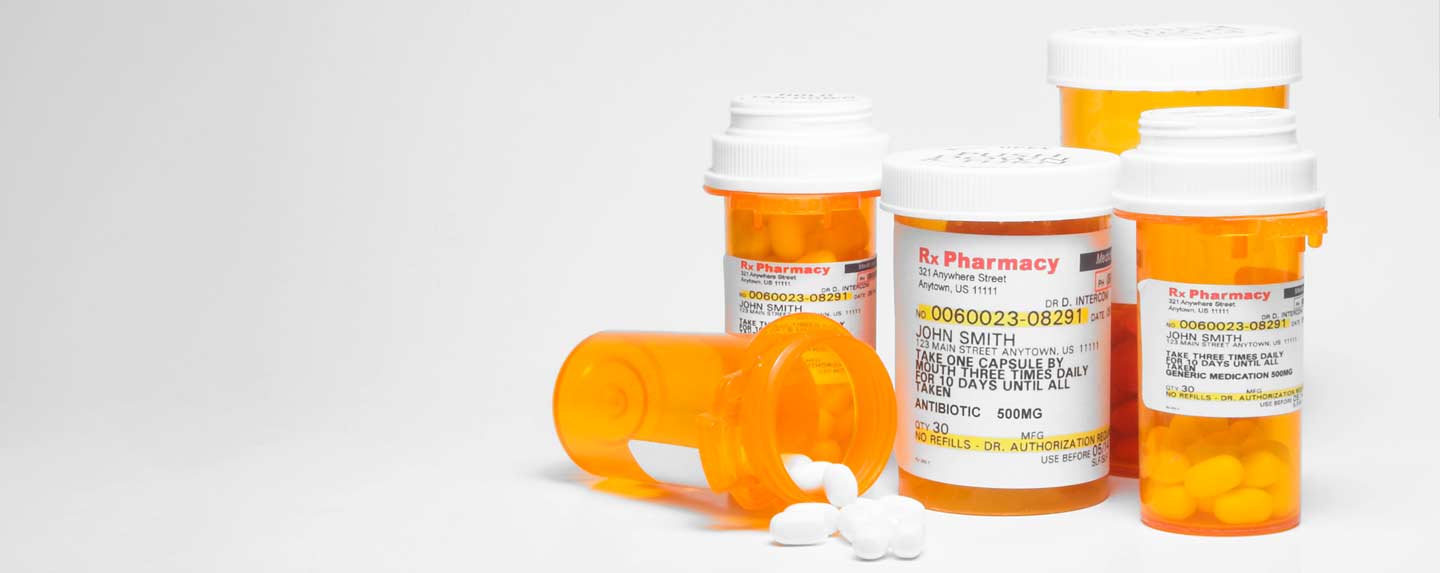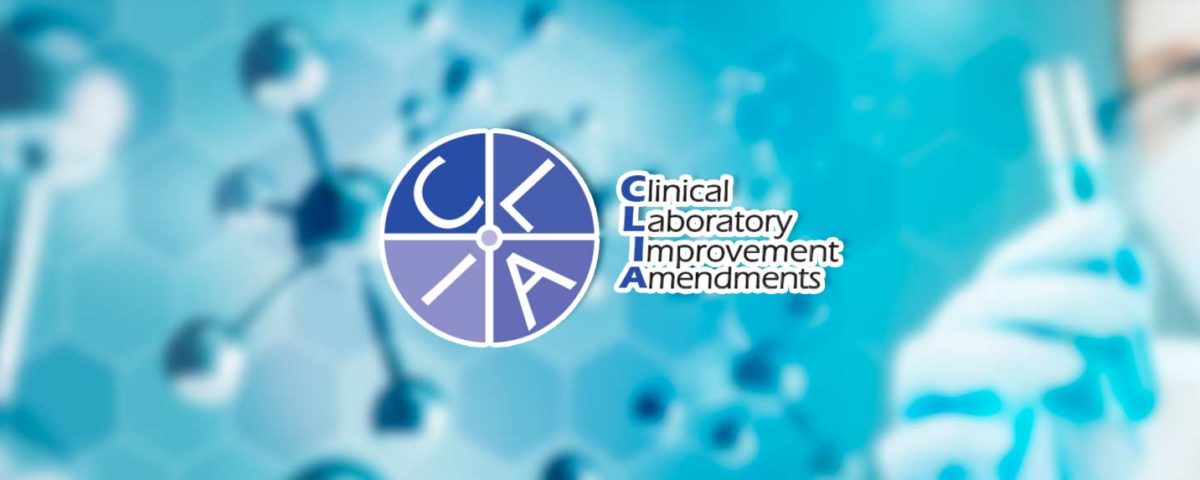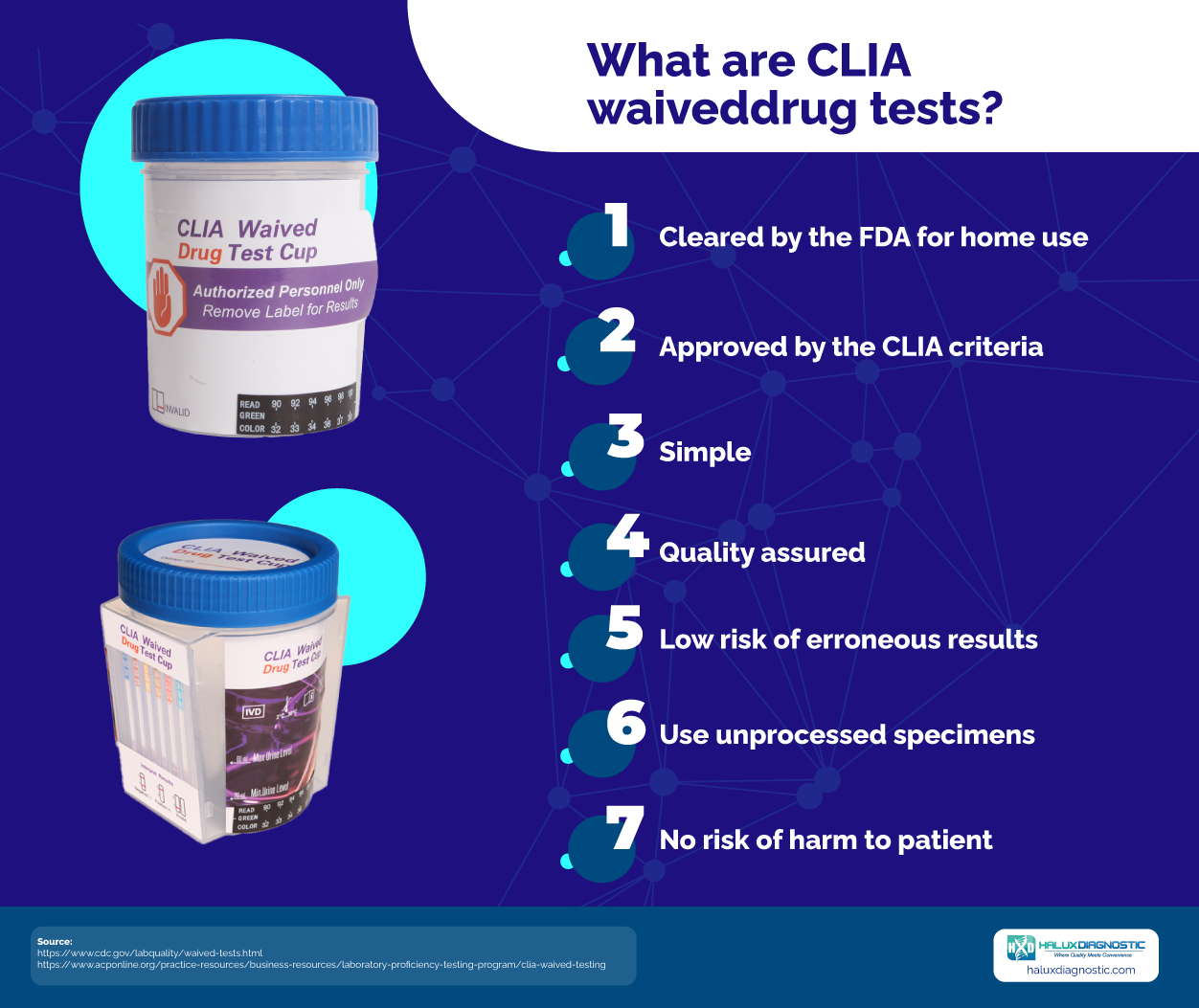


How Cross Reactivity Affects Drug Test Results
January 25, 2019


Workplace Drug Testing Benefits And Process: Employer Drug Testing Kits
January 25, 2019Quality standards for laboratories are established by CLIA to ensure reliability, accuracy, and timeliness of the patients test results. CLIA requirements apply to the clinical usage of drug testing. This includes any entity that performs tests on materials derived from the human body in order to provide assessment of the person’s health, information for diagnosis, and treatment or prevention of any impairment or disease.
Any company or organization performing tests for these purposes are considered by CLIA to be a laboratory and must abide by CLIA regulations, by registering with the CLIA program if they want to receive the benefits.
CLIA-waived drug tests standards
CLIA testing standards apply nationally and are provided through CMS (Center for Medicare and Medicaid Services). Any laboratory seeking to receive the reimbursement potential from providing CLIA-waived tests must have a CLIA-waived certificate and use CLIA-approved drug screens.CLIA-waived drug tests reimbursements are provided in accordance with the insurance providers guidelines. For information regarding current CPT codes, please refer to the American Medical Association’s Coding Resources.
Why would a business use a CLIA-waived test for drug screening?
CLIA-waived drug tests (Clinical Laboratory Improvement Amendments – CLIA) utilize very simple and concise procedures that are substantially accurate as to determine the percentages of false or negative results and pose no reasonable risk of harm to the tested person in the event the drug test were to be erroneously performed. These types of drug tests are approved and cleared by FDA as suitable for home and business use.Additional details about CLIA-waived drug test by their type of application are published by the FDA and include information and summary of the data submitted by different manufacturers who have applied to validate the determination that a CLIA-waived drug test system meets CLIA statutory criteria for waiver, and FDA’s justification for approving their CLIA-waived application.
These conclusions and decisions by the FDA provide information that is useful for manufacturers preparing future CW submissions and allow the public to be informed.
Reference and resources:
Is an at-home CLIA-waived drug screen as accurate as a lab test?
An at-home drug test will never be as accurate as a lab test. However, acquiring high-quality CLIA-waived drug screens will ensure an accuracy of 99%, which is as high as it can get for an instant test without needing to take it to the laboratory.
As a result of the high level of accuracy, CLIA-waived drug screens can be considered as a reliable filter to determine whether there has been drug abuse. Hence, only the positive results need to be taken to a laboratory to make sure they are a real positive or just a false positive. This makes CLIA-waived drug screens ideal both for employers, healthcare points and other places that need to test large amounts of people, and for at-home users who want an accurate preview of the result they will get.
For more information on the difference between instant and lab testing, see our resource: Drug screen vs drug test?
Are the CLIA waived drug test cups sold wholesale?
The short answer is yes. You can buy wholesale CLIA waived drug test cups online and you will often benefit from discounted bulk pricing.
Halux Diagnostic offers the best quality testing kits for the best price. You can get great discounts for multi-panel drug test cups or saliva testing kits when you purchase them in bulk.
5, 7, 10, 12, 13 and 14 panel urine drug test cups are available in multiple bulk quantities. We also have a selection of CLIA-waived drug test dips. Contact us for details if you have any questions about CLIA-waived drug tests and special pricing for bulk orders.
Phone: (407) 680-2209






